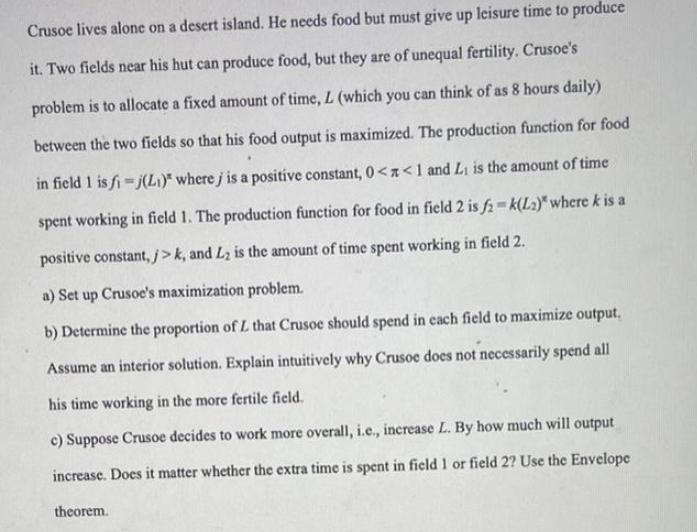Answered step by step
Verified Expert Solution
Question
1 Approved Answer
Crusoe lives alone on a desert island. He needs food but must give up leisure time to produce it. Two fields near his hut

Crusoe lives alone on a desert island. He needs food but must give up leisure time to produce it. Two fields near his hut can produce food, but they are of unequal fertility. Crusoe's problem is to allocate a fixed amount of time, L (which you can think of as 8 hours daily) between the two fields so that his food output is maximized. The production function for food in field 1 is fi- j(L) where j is a positive constant, 0 < k, and L is the amount of time spent working in field 2. a) Set up Crusoe's maximization problem. b) Determine the proportion of L that Crusoe should spend in each field to maximize output. Assume an interior solution. Explain intuitively why Crusoe does not necessarily spend all his time working in the more fertile field. c) Suppose Crusoe decides to work more overall, i.e., increase L. By how much will output increase. Does it matter whether the extra time is spent in field 1 or field 2? Use the Envelope theorem.
Step by Step Solution
★★★★★
3.32 Rating (143 Votes )
There are 3 Steps involved in it
Step: 1

Get Instant Access to Expert-Tailored Solutions
See step-by-step solutions with expert insights and AI powered tools for academic success
Step: 2

Step: 3

Ace Your Homework with AI
Get the answers you need in no time with our AI-driven, step-by-step assistance
Get Started


